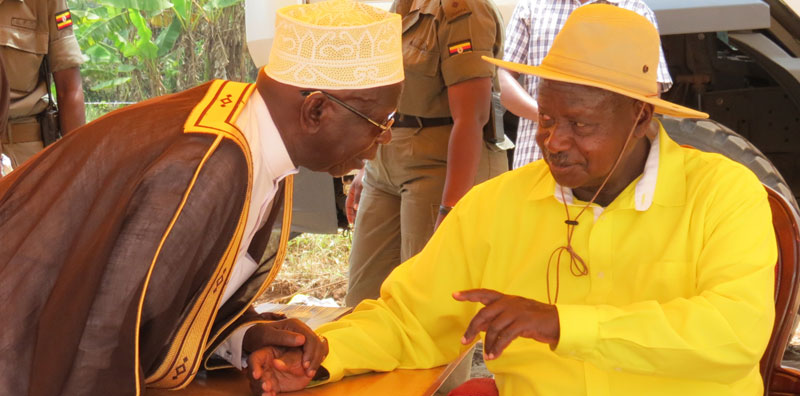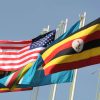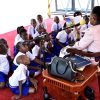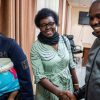Columnists
M7’s victory expected: Did the opposition expect a blue moon?
About one week towards the 2016 general elections curiosity pushed me to ask my five year old daughter who she liked between the two main presidential candidates, Museveni and Besigye. I was shocked that before I finished the question the answer was already on her lips; “Me, I like daddy”.
It doesn’t require a child to celebrate her 18th birthday first to be able to tell who matters in her life. The little girl could not mention Museveni or Besigye when there is daddy who brings her cookies and ice cream every evening. When will Ugandans start concentrating on issues that matter?
Billions have been spent in the recently concluded presidential elections and more will be spent to calm down the post election disarray; but to whose advantage? The would- be priorities have been compromised because we had to sponsor an election that was meant to prove if the colorless liquid was water or paraffin. Ugandans have got to be serious! We have joined those unserious countries where people see a bull mounting a cow and at the end of the nine months they expect the cow to deliver a puppy instead of a calf. Since when did cows start producing puppies?
Elections are like traffic lights; they only remind the driver to stop. But the decision to stop or continue is only made by the driver. We have seen reckless drivers cruising madly even when traffic lights show red. Pedestrians who still have faith in Ugandan drivers hoping that they will stop when the lights show red are busy dreaming and will soon be knocked down. A colleague of mine once told me that he considers all people idiots; it’s now their duty to prove to him that they are not. That’s his way of avoiding disappointments.
The opposition is busy lamenting over what they have called a fraudulent election. This is not the first time they are sobbing and waging allegations. If NRM, the ruling party, has always rigged the elections why then should the opposition continue to participate?
It has been written on the walls that the opposition does not trust the Electoral commission, saying that it can never deliver a free and fair election; but to our dismay the same opposition goes ahead to participate in an election organized by the very commission they don’t trust. What exactly are they proving? Why ride in a car controlled by a driver you don’t trust?
In life we need to stop taking chances. You can’t surely afford to present yourself at the altar of the devil ready for sacrifice; at least when you are aware. A team of university lecturers arrived at the airport for a flight to UK where they had been invited for an academic exchange program. When they got on board, someone whispered to them that they were the first lucky team to take a flight on a plane made by their own students.
Within the next five minutes all the lecturers had jumped off the plane because they could not risk their lives. The irony here is that even lecturers don’t trust their own students. Only one lecturer remained on board. Don’t praise him for being brave and therefore a risk taker; his confidence stems from the fact that he is sure that the plane will not even be able to take off. He is aware that their students cannot make a plane that takes off.
Voting in an election is just one of the primary activities in governance. The fact remains that even in a dictatorial type of government people do vote. Voting only becomes a factor of democracy when it is followed by checks and balances. The checks and balances here include; a trusted judiciary, and independent legislature, impartial police and army, free and impartial civil society, an independent electoral commission and other institutions.
Therefore, it is true that voting can be used to legitimize oppression and dictatorship or uphold democracy depending on the existence and proper functionality of institutions required to uphold democracy. The opposition ought to understand that where such checks and balances are almost nonexistent, voting is a mere waste of time and the tax payers’ money.
When Zimbabwe held general elections in 2013 speculators became prophets because their predictions turned into reality. A return to protracted political crisis (similar to that of 2008),extensive violence, campaign of intimidation especially in rural areas, in adequately prepared elections, media grossly imbalanced, pervasive rigging, absence of free and fair elections and strongly disputed results ruled the election season.
Basically what the world saw was a master -class in electoral fraud. It was chicanery, organized theft and electoral authoritarianism. If this happened in Zimbabwe and elsewhere what makes the Ugandan opposition think that it can’t happen here?
Whenever the opposition claims that an election is rigged, it is either true or they are trying to cover up their failure by cultivating such an excuse to justify their miserable loss. During campaigns the opposition goes on giving voters false assurance that votes will be protected and it is the very group that comes around yelling for the voters’ sympathy after being wrestled down. These fellows think that an election is won in one day.
If they never knew, they ought to know that the rigging process begins in advance. In Zimbabwe’s last election Mugabe began his rigging activities well before an official poll date was even confirmed.
The first voter registration drive kicked off in May 2013 focusing mainly on ZANU-PF strongholds in the North. He also allowed superficial democratic reforms, but kept big-ticket items off the negotiation table. He took control of the state media, declared that people had spoken and did not look back. He seized control of the election machinery and made sure that his rigged triumph is plausible.
Comments














